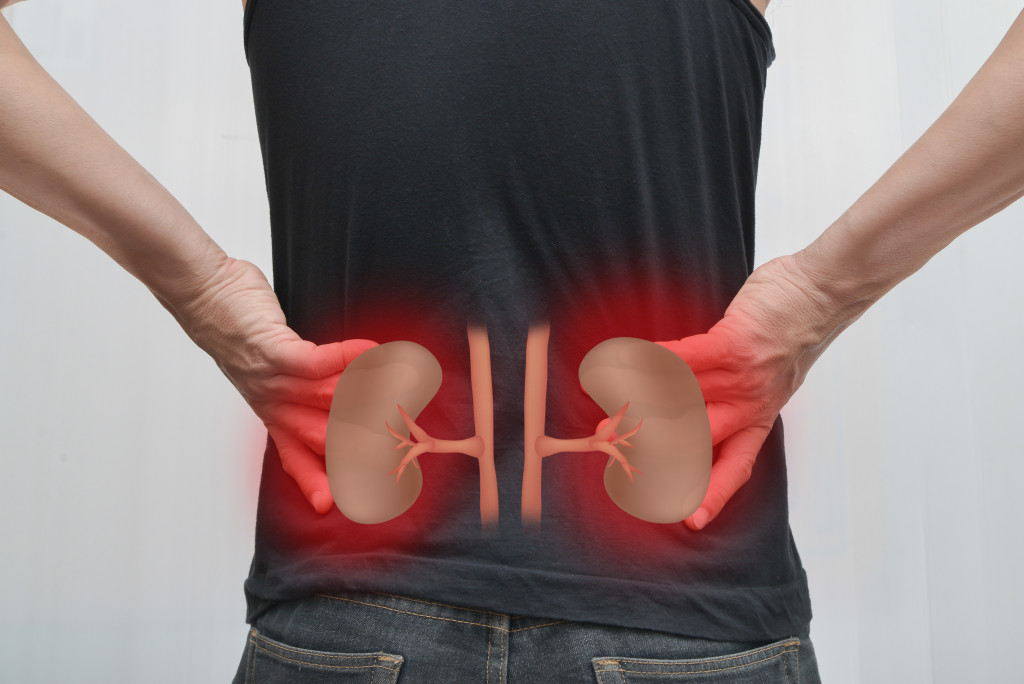Living with chronic kidney disease (CKD) is not easy, but it shouldn’t be too difficult either. Although managing this disease comes with modifying almost every aspect of your everyday life, there are plenty of workarounds and strategies that you can set in place to make life as easy as possible.
Before discussing that, let’s define what chronic kidney disease is.
What is chronic kidney disease?
Chronic kidney disease (CKD) is a condition that lasts for a long time. It is characterized by the gradual decline of kidney function. The symptoms of CKD include swelling in the ankles, feet, or hands (edema), shortness of breath, blood in the urine, and tiredness. However, these symptoms usually appear in later stages.
CKD can worsen as time passses. The kidneys may stop functioning, but this is not a usual scenario. People with this condition can live long, especially with proper management.
What to do after your diagnosis
After your doctor diagnoses you with CKD, it is important that you take good care of your health to prevent it from progressing. Kidney damage is irreversible, but CKD does not always get worse. In any case, it is highly advisable that you make certain adjustments to your lifestyle to maintain good health.
Transitioning to a new life with CKD is not always easy for everyone. Although you may go about your life without experiencing the effects of the condition, expect that it can get worse. That said, here are several tips on how you can adjust to living with CKD:
-
Learn about your condition
After your diagnosis, your doctor will explain the disease to you, particularly what it does to your body and what can happen over time. However, the discussion in the doctor’s office may not be enough to help you fully understand your condition.
Learning more about your condition is the best way to prepare for your new lifestyle, especially how to manage the disease in the best ways possible. Research what the disease is, what it does to your kidneys, how you can prevent further damage, and other fundamentals that you need to know. It may also be advisable to look up healthcare facilities with partnerships for dialysis care if your disease progresses later in life. Not all people with CKD will need dialysis, but it is better to be prepared with options just in case.

-
Work with a nutritionist
One of the most important ways to manage CKD is to eat a balanced diet, particularly one with low levels of salt, sugar, and saturated fat. However, it can be difficult to formulate a suitable diet on your own. If this is the case for you, consulting a nutritionist or dietitian can make a huge difference.
A nutritionist is the best person to help you create a diet that can improve your general health and prevent your condition from getting worse. They can also advise you on the best foods to eat, as well as alternatives for your favorite foods that are not suitable to your dietary restrictions.
Also, remember that a medical diet does not have to be overly restrictive. Avoiding certain foods is common for CKD diets, but there are countless food alternatives that you can enjoy.
-
Limit your vices ASAP
Smoking and excessive alcohol consumption are bad for your overall health, but they are especially worse for CKD people. If you smoke, stop smoking as soon as possible. Consult a doctor if you need smoking cessation assistance or enroll in a nicotine addiction treatment program.
On the other hand, limit your alcohol consumption to not more than 14 alcohol units a week. The less you drink, the better. But if you need assistance with reducing your alcohol intake, speak with your doctor.
-
Reach out to your support system
Dealing with a life-long disease is not easy, and taking in the news that you have CKD can be one of the worst moments in your life. That said, you must reach out to your loved ones for support, especially after your diagnosis. Simply having someone else know that you have the disease can be enough comfort during this difficult time, and having other people help you adjust to your new lifestyle makes a big difference.
CKD is not a death sentence, but what you do with your lifestyle after diagnosis can greatly affect your prognosis. With these tips, you can have an easier time adjusting to your new management plan, which can help you prevent the disease from getting worse—and ultimately, allow you to live life in the best health possible for years to come.

